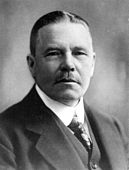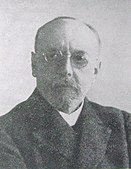Swedish general election, 1921
|
|
|||||||||||||||||||||||||||||||||||||||||||||||||||||||||||||||||||||
|---|---|---|---|---|---|---|---|---|---|---|---|---|---|---|---|---|---|---|---|---|---|---|---|---|---|---|---|---|---|---|---|---|---|---|---|---|---|---|---|---|---|---|---|---|---|---|---|---|---|---|---|---|---|---|---|---|---|---|---|---|---|---|---|---|---|---|---|---|---|
|
|||||||||||||||||||||||||||||||||||||||||||||||||||||||||||||||||||||
|
All 230 seats in the Riksdag |
|||||||||||||||||||||||||||||||||||||||||||||||||||||||||||||||||||||
|
|||||||||||||||||||||||||||||||||||||||||||||||||||||||||||||||||||||
|
|||||||||||||||||||||||||||||||||||||||||||||||||||||||||||||||||||||
Hjalmar Branting
Social Democratic
Early general elections were held in Sweden between 10 and 26 September 1921. In the first elections held under universal suffrage, the Swedish Social Democratic Party remained the largest party, winning 93 of the 230 seats in the Second Chamber of the Riksdag. Party leader Hjalmar Branting formed his second government.
Before the elections in 1921, the Social Democratic Left Party of Sweden accepted Lenin's April Theses. It was renamed the Communist Party of Sweden, whilst a breakaway faction of some 6,000 socialists who had been excluded by the communists as non-revolutionary elements kept the previous name.
In 1921, a universal and equal suffrage was introduced for men and women alike, and the Riksdag finally achieved a system of democratic representation for all citizens who were at least 23 years old on election day. Nevertheless, it was still possible, even after 1921, to exclude certain groups from the right to vote. An example was individuals who had been declared incapable of managing their own affairs by a court of law. This limitation of the franchise disappeared only in 1989 when the Riksdag abolished incapacitation.
It signified the five first women MPS to be elected to the Swedish Parliament after the women suffrage of 1919, with Kerstin Hesselgren in the Upper chamber, and Nelly Thüring (Social Democrat), Agda Östlund (Social Democrat) Elisabeth Tamm (liberal) and Bertha Wellin (Conservative) in the Lower chamber.
...
Wikipedia





